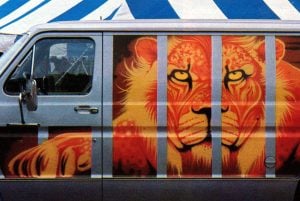Adapted from the long-running radio program of the same name, this popular western was the backbone of CBS’ Saturday night programming for 12 years, before anchoring the Monday night shows for for its later seasons.
Set in the Old West, this classic TV western centered on U.S. Marshal Matt Dillon’s efforts to maintain law and order in Dodge City. With its memorable characters and action-packed storylines, Gunsmoke quickly captured the attention of viewers across the country.

At the heart of the show was James Arness, who played the stoic yet just Marshal Dillon. Arness became a TV legend in his own right, portraying the role for a full 20 years. Gunsmoke wasn’t just about gunslingers and outlaws, though. It brought the Wild West to life in a more authentic way than earlier shows, touching on moral questions and human relationships. With characters like Miss Kitty and Doc Adams rounding out the cast, it became a show with both heart and grit.
Another reason for the show’s success was its ability to evolve. Gunsmoke started out as a half-hour program but soon expanded to an hour, giving writers more room to develop the characters and weave in deeper stories. Its move from radio to television, too, was groundbreaking, helping to bridge different eras of entertainment. It was this versatility that allowed Gunsmoke to stay fresh, even as television itself evolved.
By the time it ended in 1975, Gunsmoke had paved the way for future TV dramas. Its influence can be seen in modern Westerns and even contemporary shows that explore law enforcement and morality. The series also cemented the cowboy as a key figure in American pop culture, keeping the spirit of the West alive long after its prime.
Below, we’ve gathered a collection of vintage photos, videos, and other memorabilia from the show. Scroll on to take a trip back to Dodge City!

From the start: ‘Gunsmoke’ makes its TV debut (1955)
The Times (Shreveport, Louisiana) September 04, 1955
“Gunsmoke,” the widely-acclaimed CBS radio series dramatizing the Western frontier adventures of stern Marshal Matt Dillon, will make its debut as a television series on the CBS Television Network and KSLA, Channel 12 next Saturday night at 8:00 o’clock.
James Arness portrays Dillon, respected Marshal of Dodge City, Kansas, during the turbulent era in the nation’s development when a six-shooter vied with a badge for supreme authority.
Amanda Blake, as Kitty, cafe hostess; Dennis Weaver, as Cheater, Dillon’s sidekick; and Milburn Stone, as Doc, the town character, are featured.
“Gunsmoke,” produced and directed by Charles Marquis Warren, dramatizes the activities of Dillon, a man not without faults, who fights vigilantly for law and order in a frontier boomtown that was marked with a violence notorious even in that lawless era.
To Dodge City come the renegades and ruthless gunmen of the times, determined to further their selfish interests at the expense of pioneering families.
Dedicated to uphold the true sense of justice necessary for the growth of the great West, Dillon meets the challenge of might and evil with an understanding for the homesteading pioneers, and unswerving character and a pair of fists that command respect with or without a six-gun.
Norman Macdonnell, producer of the successful “Gunsmoke” series on KWKH and CBS radio at 11:30 a.m. Saturday mornings, will script the “Gunsmoke” telecasts.

Odyssey of Gunsmoke’s Marshal Dillon, still going strong in ’71
By Norman Mark – The Herald-News (Passaic, New Jersey) June 4, 1971
If my memory is correct, the first TV episode of Gunsmoke, on September 10, 1955, showed an average gunman coming into an average western town.
There was the typical back-and-forth cutting between the gunman and the marshal, until the atypical shootout in which the bad guy won by shooting the marshal in the leg.
Old, cynical Doc then patched up Marshal Matt Dillon and advised him to forget all the western idealism that we (the audience) had learned from countless movies and books.
Meanwhile, Kitty, the saloon girl, was busy running a brothel. Or perhaps she was participating in its activities. In any case, she was a hard-bitten broad who enjoyed life and, perhaps, the favors of Marshal Dillon.
In the final scene of that first episode, the gunman again called the marshal out for a deadly duel. The marshal stepped out of the door of his office and, without waiting, drew his gun and killed the bad guy.

And so television’s first adult western (which had already been radio’s first adult western) was born. In those earlier days, the series had a cast of unknowns.
James Arness played Matt Dillon. (It wasn’t until Gunsmoke had been on TV for more than a decade that I realized that Arness was already famous as the man who played the title role in the 1952 horror film, “The Thing.”)
Milburn Stone, the veteran movie character actor, played Doc,and Amanda Blake was Kitty.
Things have changed after 16 years of Gunsmoke. Dennis Weaver, who played Chester, the stiff-legged deputy, has long since gone, and so has Burt Reynolds, who used to play a strong, silent blacksmith.
Kitty is really a den mother these days. And Matt doesn’t shoot many people. But the show keeps rolling on.
To find out more about one of television’s longest-running series, I spoke with John Mantley, executive producer of Gunsmoke since 1968, but who has been with the series since 1964.
“Yes, in the beginning, Kitty was a whore, but the audience got to love her, and they didn’t want her to dispense her favors to everyone. In the early shows, the audience even saw guys going up and down the stairs of the saloon with the girls.”
Now Kitty often sits and drinks coffee with Matt and Doc.

“‘We get many letters from viewers who want to see more of James Arness, who probably has been exposed to more film than any other actor in history, including John Wayne and Charles Chaplin.
“But with the edicts against violence, I have difficulty using him. He’s got a gun on his hip and we can’t have him just walking around, snoozing in the sun and talking to the ladies.
“It is also very difficult for Amanda to oppose Jim, or for Milburn to oppose Amanda. Except on rare occasions, their characters always agree.
“You see, the first reaction on my part to lessening the violence in Gunsmoke was to say, fine, let’s do more stories about the characters in the show. That seemed logical. But, when I came to do that, it was impossible.
MORE: Death of an outlaw: First account of Jesse James’ murder (1882)
“They have been together so long that they cleave together, and they agree on so much.”
Since Mantley can’t have Doc, Kitty or Matt arguing, and since Matt can’t lumber about settling all problems with a bullet, this fall’s Gunsmoke programs will depend heavily on people who wander into town and create problems.
(In the last few years, in fact, hundreds of strange characters have come to Dodge City. The town is practically the weirdo capital of the old West.)
Milburn Stone is recovering from open-heart surgery, so actor Pat Hingle, will be the new doctor in town during the first 12 shows, nine of which are already completed. (It is hoped that Stone will be back in time to go before the cameras for the final 12 programs to be filmed this fall.)
As is often the case, the man who makes the final decisions about a TV series, although generally unknown to the public, has a fascinating personal background.

Mantley, 50, is Mary Pickford’s cousin, author of two Book-of-the-Month novels, writer of 23 “Untouchables” episodes, and winner of several awards for his work with Gunsmoke.
”Mention awards, and you have hit the sorest point in the whole world with me,” Mantley says. ”Gunsmoke got Emmys the first two years it was on the air. But it took more than a decade for Stone to get his award [for outstanding performance by an actor in a supporting role in a drama, in the 1967-68 TV season] and that was because of a fluke.
“You see, the trade, the industry, votes on the Emmy awards and the trade doesn’t watch Gunsmoke. In 1967, however, Milburn was in a show in which he tried to find a home for triplets. I ran that episode once and reran it.
“Then, because I had to lift the violent programs out of the series, I ran Milburn’s show a third time, just before the voting took place. We saturated the country with that episode.
“In the last three or four years, Gunsmoke hasn’t received a nomination in any category.”
MORE: The amazing Annie Oakley: Meet the legendary American sharpshooter from the old West
Mantley doesn’t believe Gunsmoke should be used to deliver deep messages, although he does think that the show is often a morality play.
He likes to remember an Eichmann-like story, in which Nehemiah Persoff played a Dodge City citizen who was greatly respected until it was discovered that, during the Civil War, he had been commandant of a prison camp where 7,000 men had died.
Or the episode in which Kitty found a so-called wolf child who didn’t speak a word, as in Francois Truffaut’s film, “Wild Child.”
Mantley says that Gunsmoke is popular because its characters represent a cross-section of humanity. “We have a lawman with the power of life and death by the gun, a doctor with the power of life and death with his science; Kitty, who is the earth mother to all men, and a vagabond (Festus) who lives with his wit and humor.” (My own cross-section would include a few other types of people, but then my cross-section hasn’t been a successful TV series for 16 years.)

Mantley has one Gunsmoke episode this fall in which a bad guy shoots a priest, who uses his own blood to draw a cross on the murderer’s forehead and who says, “I forgive you,” before the priest dies.
In another show, Festus (Ken Curtis) finds an old Indian in a cave waiting to die. Festus brings the man to the town, and the televiewers thus see a program on the problem of what to do about the aged.
Other scripts have yet to be found. Gunsmoke is a rarity among TV shows in that those associated with the program read scripts or ideas submitted directly to the show. (Most TV shows require that scripts be sent through a recognized agent.) A writer can get up to $4,500 for a Gunsmoke script.
All you have to do is write about four friendly people (plus the town’s new young kid, played by Buck Taylor, who represents innocence) in the old West who do not argue, drink or shoot very much, but who can watch interesting people come into Dodge City.

You can even use my sure-to-be-rejected final Gunsmoke plot:
Kitty gets tired of the straight life and decides that what Dodge City really needs is a good brothel. Matt, faced with the choice of marrying her or watching her become a dishonest woman, gets angry and shoots 15 wandering bums who have strayed into town.
Festus arrests Matt and becomes the new marshal. But Festus finds the responsibility too much for him, and wanders off with Doc, who has discovered a 100-proof patent medicine that doesn’t cure anything, but makes you feel good.
MORE: How the top western movie star Tom Mix gained fame on a horse, and lost his life in a car
Festus and Doc are later seen on hundreds of commercials for various cold cures. The 15 bums, it turns out, are wanted for murder in seven states, and Matt becomes a hero again. He marries Kitty and becomes half-owner of the Long Branch Saloon.
Then we see him walking slowly down a dusty street, his hands near his six-shooter. He enters a bank.
With surprising swiftness, he takes out a check and cashes it. It’s for all the residuals from Gunsmoke, and, after cashing it, we discover that Matt Dillon now owns the bank, Dodge City, all of the old West, and much of the new West.
At the last-fade out, James Arness is strolling out of town to search for new land developments.
Gunsmoke opening credits

The end of an era: ‘Gunsmoke’ canceled after 20 years
By Gary Deeb – The Times (Shreveport, Louisiana) May 11, 1975
“We spent a lot of time agonizing over the decision,” said CBS-TV President Bob Wood. “But there comes a time when something must end.”
And so Matt Dillon is headed for Boot Hill. Gunsmoke, the longest-running dramatic scenes in TV history and perhaps the most financially lucrative TV show ever, is dead at the age of 20.
CBS canceled the legendary western in the wake of several seasons of sliding ratings. The program still was reasonably popular, but the vital signs were flagging, and so the network reluctantly pulled the plug on a classic piece of Americana that made James Arness as much a symbol of the Old West as John Wayne.
“Well, 20 years is not a bad run,” commented John Mantley, Gunsmoke’s executive producer. “It was a great series, and this last year was a very good one for us. Most of our episodes this season are outstanding. It was a nice way to go out.”

Mantley’s relative cheerfulness is understandable. Virtually everybody associated with Gunsmoke over the last two decades lined his pockets with gold.
Armess, in particular, profited from the program perhaps more so than any one person ever has profited from any single TV series.
The show made Arness a multimillionaire. Big Jim bought Gunsmoke from CBS in the late ’50s, then sold it back to the network a few years later for an undisclosed, but no doubt staggering, sum.
In 1955, Armess was basically an unknown actor whose chief claim to fame was his title role in the science-fiction thriller, “The Thing.” He was a mediocre performer, but a pal of John Wayne.
When CBS decided to switch Gunsmoke from radio to television, it was clear from the start that William Conrad, the tough and mellifluous radio voice of Matt Dillon, was not the man for the screen role.
MORE: Native American sign language: Illustrated guides to 400 gestures
Big Bill was short, rather villainous-looking, and he sported a beer gut that just wouldn’t quit — a far cry from “The Great American Hero.”
CBS begged Wayne to play Matt Dillon. The Duke, however, wanted no part of television. Instead, he suggested his buddy Arness for the part.
Impressed with Jim’s rangy good looks and strong, silent demeanor, CBS took a chance, and Wayne even introduced his friend to viewers on the Gunsmoke premiere of September 10, 1955.
For Arness, the show proved to be a soft touch. Since becoming Matt Dillon, he hasn’t appeared in a single movie or guest shot. He has steadfastly refused to be interviewed. And after the first few seasons, his Gunsmoke role got to be such a cinch, Jim could have phoned in his part every week.
Over the years, Gunsmoke evolved from an “adult western” that featured blazing gun battles into a rather talky but magnificently staged, well-written drama series.
Even Miss Kitty, played by the semi-talented Amanda Blake, underwent a character metamorphosis. In Gunsmoke’s early days, there was no question about Kitty’s role in Dodge City — she was a saloon girl who ran a brothel.

In recent years, however, she was merely a close friend of Matt who sat around and drank a lot of coffee with Matt and Doc.
“Yes, in the beginning, Kitty was a woman of ill-repute,” said producer Mantley. “But the audience got to love her, and they didn’t want her to dispense her favors to everyone. Why, in the early shows, the audience even saw guys going up and down the stairs of the saloon with the girls.”
Also, a 1968 cutback on TV violence spelled the end of Gunsmoke’s fabled opening, with Arness gunning down an adversary on Dodge City’s main street.
MORE: ‘Here Come the Brides’ theme song, lyrics & what the actors thought of the show (1968-1970)
Arness, of late, was seen less and less on Gunsmoke. Some seasons he had a major part in only six episodes and just “walked through” the remaining 18.
Producer Mantley directly attributed Jim’s decreasing visibility to the CBS fear of too much violence. “He’s got a gun on his hip and we can’t have him just walking around, snoozing in the sun, and tipping his hat to the ladies.” he reasoned.
Gunsmoke actually would have perished in the mid ’60s, were it not for the fact that Wilham Paley, board chairman of CBS. Inc., was a rabid fan of the program.

Paley returned from a vacation in the Bahamas, as the CBS story goes, and met with his programming boss, Mike Dann. The two men were alone in a conference room with a giant CBS new-season program board directly in front of them.
Paley eyed the big board for a few minutes, then said: “I see Gunsmoke is not on there.”
“No sir, it isn’t,” replied Dann.
“Just who made up this schedule?” demanded Paley.
By now Dann was getting nervous. “Well, sir, the program committee did. That is the committee’s recommendation.” Then Dann reached into his pocket and pulled out a piece of paper. “But here’s my recommendation, sir,” he said.
Thus, Gunsmoke gained a second life and 10 more years of success. But there will be no such executive clemency this time.



















